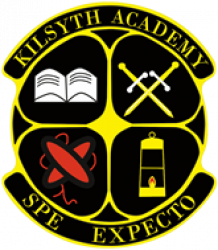S2 Science
In second year all learners will follow a general science course in which they will have lessons in Chemistry, Physics and Biology. These sciences will be embedded in topic areas.
The learning in science in S2 builds on the science experienced in S1.
The topic areas in second year are:
Electricity – voltage, current, series circuits and parallel circuits.
Forces – push, pull, gravity and Newton’s Law
Chemical Reactions – colour changes, new products, rate of reactions, reactant and products
Mystery of Substances – elements, compounds, mixtures and the Renewable Energy– wind turbines, pollution, solar panels, hydroelectric stations and green house effect.
Biotechnology – Bacteria growth, genetic engineering, genetically modified materials and advantages/disadvantages of these.
Separating Substances – solubility, insolubility, filtration and evaporation.
Scientist of the Month
Learners in S2 are also required to carry out research at home in what is called a “Scientist of the Month” project. The topic areas are:
Family Album (in Class and at Home)
Pupils in groups choose a family in the periodic table and each pupil researches their own element, the pupils then pull this information together to show similarities and differences between members of the same group.
Investigating a Cell(homework piece)
Pupils create a leaflet on a cell
Voltage investigation
Biotechnology investigation
The best work is rewarded with a certificate in a ‘celebration of success’ event. The names are also posted on the Science Department celebration of Success notice board.
Homework
Scientist of the Month projects as detailed above.
All learners will have a piece of written homework at least once every 2 weeks.
They are also expected to look at the notes in their jotters before they attend their next lesson.
Sometimes the homework will take the form of learning a piece of information
If they are absent they will need to catch up on what they have missed.
Literacy and Numeracy
Literacy is developed throughout S2 in many ways:
Focusing on their ability to carry out research and produce a piece of writing.
This in itself requires many skills such as accessing and collecting relevant information, writing in their own words and in a logical order to allow others to understand. they need to use appropriate scientific language.
Reading a passage and answering questions to show understanding.
Punctuation, grammar and spelling.
Numeracy and investigative skills are developed throughout S1 in many ways:
Drawing bar charts to present information which has been given in the form of a table.
Drawing line graphs from information which has been given in the form of a table.
Interpreting the information from both bar charts and line graphs and writing a conclusion.
Collecting information and presenting it in the form of a table with suitable headings.
Planning an investigation, collecting data, presenting the data as a table, graph or other format, and writing a conclusion and evaluate their method.
Assessment in S2
There are end of topic assessments in which there are questions for knowledge and skills in problem solving/numeracy.
Report writing/numeracy – on going through S2
Research/literacy – ongoing through S2
Learners are expected to prepare for end of topic assessments, and to do their best at all times.


